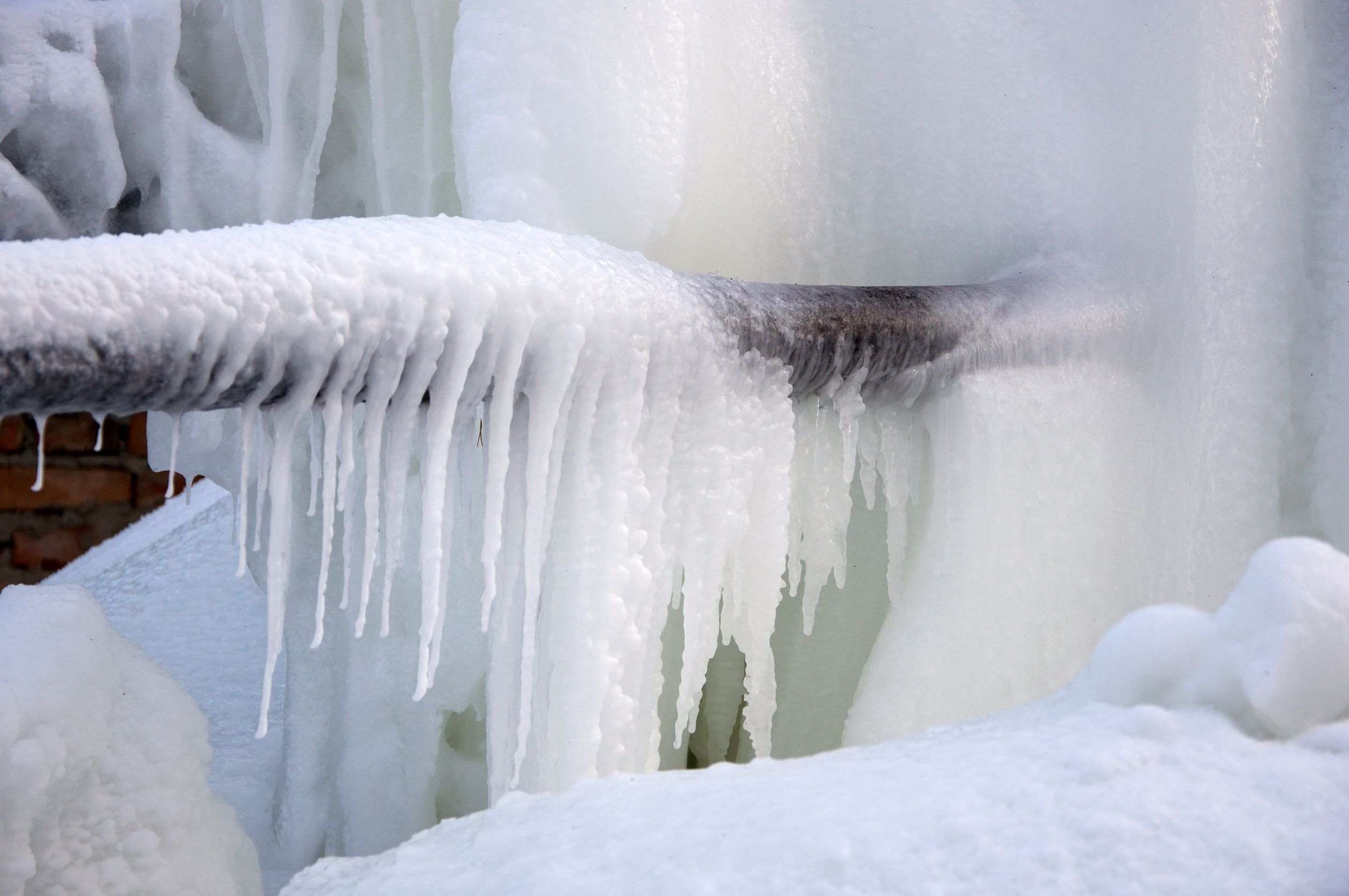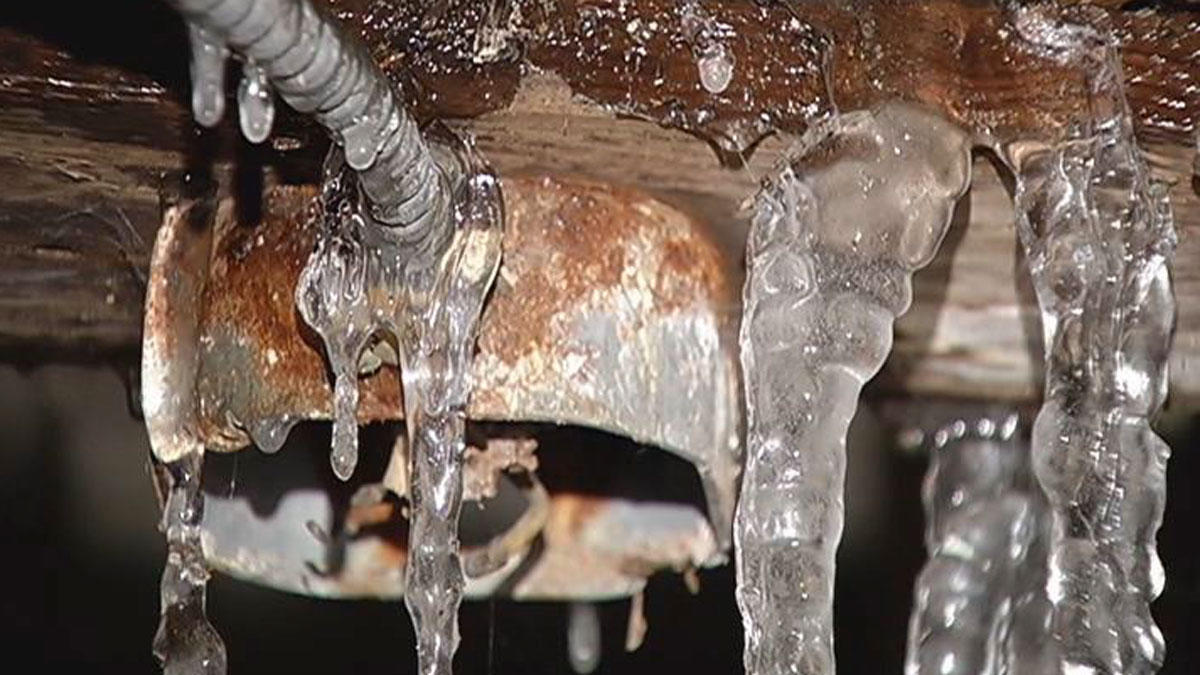Ways to Safeguard Pipes from Freezing: Professional Tips
Ways to Safeguard Pipes from Freezing: Professional Tips
Blog Article
How do you really feel when it comes to How to prepare your home plumbing for winter weather?

Cold weather can damage your pipes, specifically by freezing pipes. Here's exactly how to avoid it from occurring and what to do if it does.
Intro
As temperature levels decline, the threat of icy pipelines rises, possibly bring about pricey repairs and water damage. Recognizing just how to prevent frozen pipelines is important for home owners in cold climates.
Avoidance Tips
Insulating prone pipelines
Wrap pipes in insulation sleeves or make use of heat tape to protect them from freezing temperatures. Focus on pipelines in unheated or exterior locations of the home.
Heating strategies
Keep indoor rooms adequately heated, specifically areas with plumbing. Open closet doors to allow warm air to distribute around pipelines under sinks.
Exactly how to identify icy pipes
Look for lowered water circulation from taps, unusual odors or noises from pipelines, and noticeable frost on exposed pipes.
Long-Term Solutions
Architectural changes
Consider rerouting pipes away from outside wall surfaces or unheated locations. Include additional insulation to attic rooms, cellars, and crawl spaces.
Updating insulation
Purchase high-grade insulation for pipelines, attic rooms, and wall surfaces. Appropriate insulation assists preserve constant temperatures and reduces the risk of icy pipelines.
Securing Outdoor Pipes
Garden pipes and outdoor taps
Disconnect and drain yard hose pipes prior to winter season. Install frost-proof spigots or cover outside faucets with shielded caps.
Recognizing Icy Pipes
What creates pipes to freeze?
Pipes freeze when exposed to temperatures listed below 32 ° F (0 ° C) for expanded durations. As water inside the pipelines ices up, it increases, taxing the pipe wall surfaces and possibly triggering them to rupture.
Risks and problems
Icy pipes can bring about supply of water interruptions, property damage, and costly repair services. Burst pipes can flooding homes and create extensive architectural damage.
Indications of Frozen Water Lines
Determining icy pipelines early can avoid them from rupturing.
What to Do If Your Pipes Freeze
Immediate actions to take
If you suspect frozen pipelines, maintain taps available to ease pressure as the ice melts. Make use of a hairdryer or towels taken in hot water to thaw pipelines gradually.
Conclusion
Preventing icy pipes calls for positive steps and fast actions. By understanding the reasons, signs, and safety nets, property owners can shield their plumbing throughout cold weather.
Helpful Tips to Prevent Frozen Pipes this Winter
UNDERSTANDING THE BASICS: WHY PIPES FREEZE AND WHY IT’S A PROBLEM
Water freezing inside pipes is common during the winter months, but understanding why pipes freeze, and the potential problems it can cause is crucial in preventing such incidents. This section will delve into the basics of why pipes freeze and the associated problems that may arise.
THE SCIENCE BEHIND FROZEN PIPES
When water reaches freezing temperatures, it undergoes a physical transformation and solidifies into ice. This expansion of water as it freezes is the primary reason pipes can burst. As the water inside the pipe freezes, it expands, creating immense pressure on the walls. If the pressure becomes too great, the pipe can crack or rupture, leading to leaks and water damage.
FACTORS THAT CONTRIBUTE TO PIPE FREEZING
Low Temperatures: Extremely cold weather, especially below freezing, increases the risk of pipes freezing. Uninsulated or Poorly Insulated Pipes: Pipes located in unheated areas, such as basements, crawl spaces, or attics, are more prone to freezing. Insufficient insulation or lack of insulation altogether exacerbates the problem. Exterior Wall Exposure: Pipes running along exterior walls are susceptible to freezing as they encounter colder temperatures outside. Lack of Heating or Temperature Regulation: Inadequate heating or inconsistent temperature control in your home can contribute to frozen pipes. PROBLEMS CAUSED BY FROZEN PIPES
- Pipe Bursting: As mentioned earlier, the expansion of water as it freezes can cause pipes to burst, resulting in significant water damage.
- Water Damage: When pipes burst, it can lead to flooding and water damage to your property, including walls, ceilings, flooring, and personal belongings.
- Structural Damage: Prolonged exposure to water from burst pipes can compromise the structural integrity of your home, leading to costly repairs.
- Mold and Mildew Growth: Excess moisture from water damage can create a favorable environment for mold and mildew growth, posing health risks to occupants.
- Disrupted Water Supply: Frozen pipes can also result in a complete or partial loss of water supply until the issue is resolved.
WHY CERTAIN PIPES ARE MORE PRONE TO FREEZING
- Location: Pipes located in unheated or poorly insulated areas, such as basements, crawl spaces, attics, or exterior walls, are at higher risk of freezing.
- Exterior Pipes: Outdoor pipes, such as those used for irrigation or exposed plumbing, are particularly vulnerable to freezing as they are directly exposed to the elements.
- Supply Lines: Pipes that carry water from the main water supply into your home, including the main water line, are critical to protect as freezing in these lines can affect your entire plumbing system.
- Underground Pipes: Pipes buried underground, such as those connected to sprinkler systems or outdoor faucets, can be susceptible to freezing if not properly insulated.
https://busybusy.com/blog/helpful-tips-to-prevent-frozen-pipes-this-winter/

I was shown that write-up about How to Prevent Your Pipes From Freezing from someone on our other web page. Liked our write up? Please quickly share it. Help somebody else check it out. I praise you for your time. Return soon.
Call Today Report this page